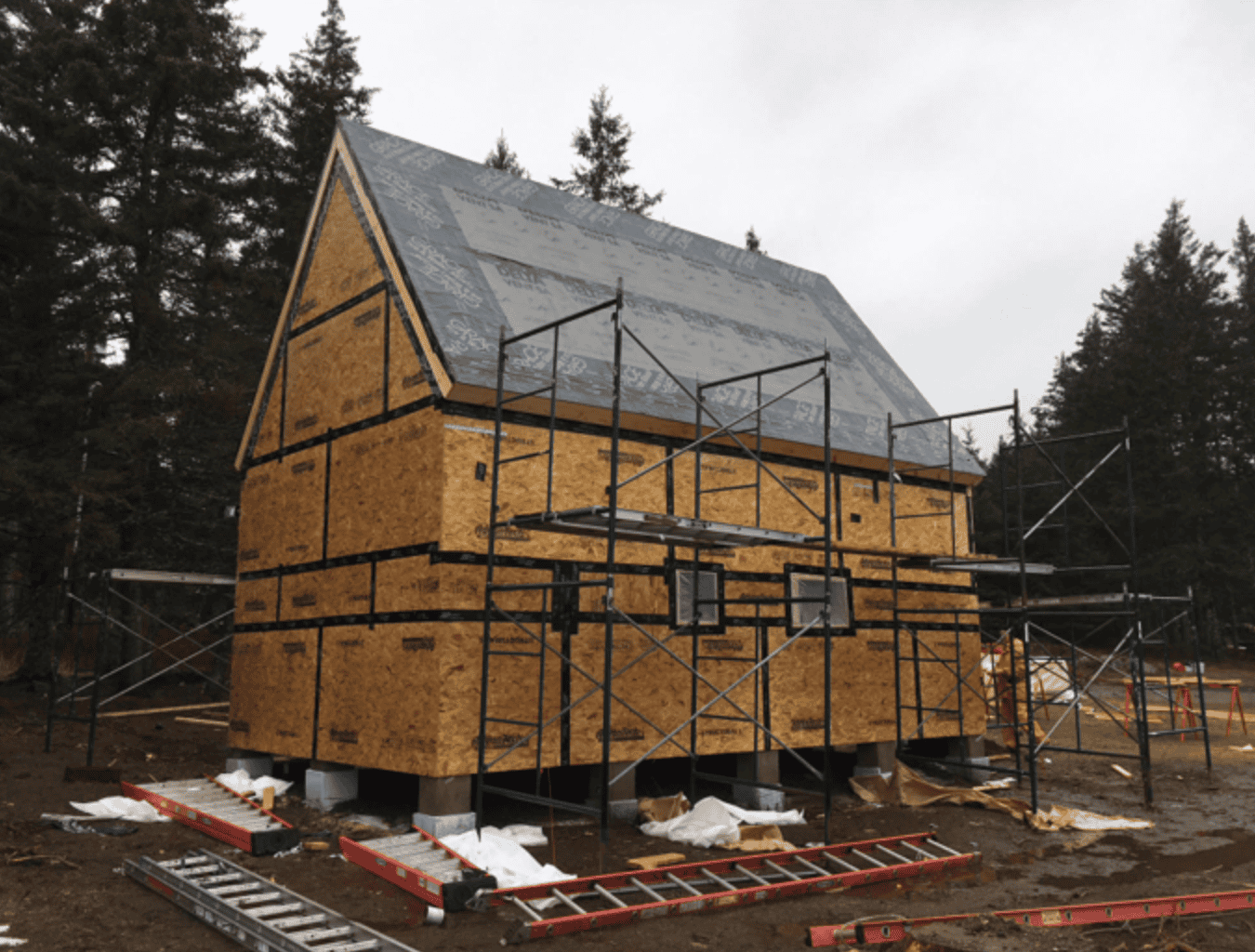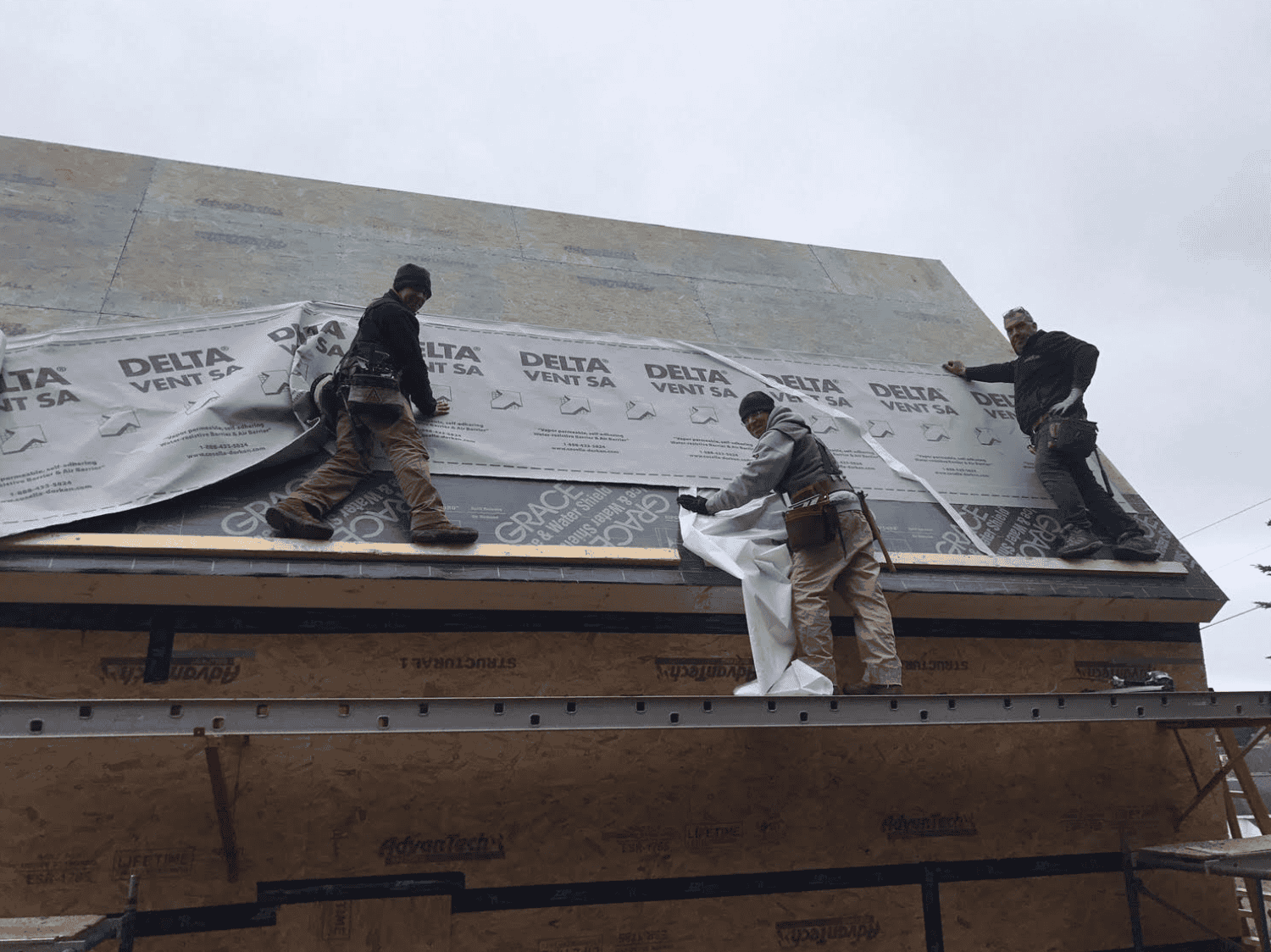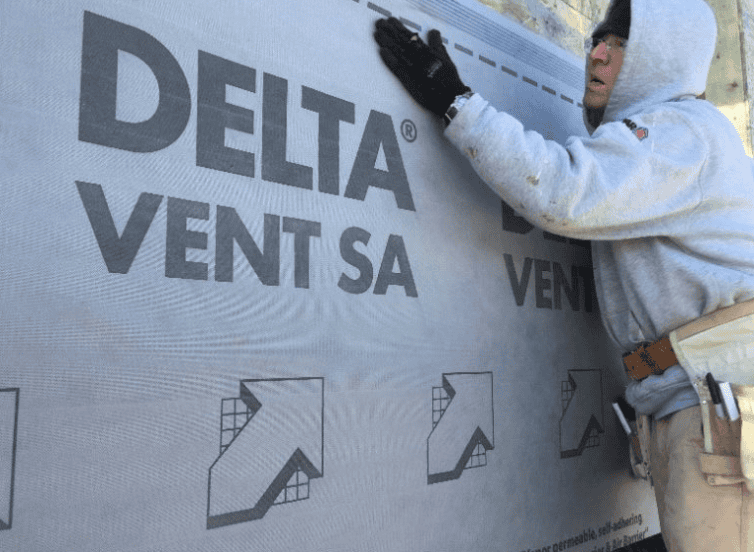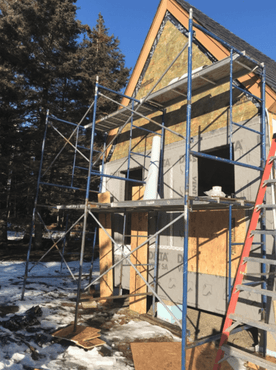Posted by Spycor Building on Aug 28th 2025

Are you tired of dealing with costly repairs from moisture damage in your buildings? Imagine constructing a structure that stands strong against howling winds and pounding rain, year after year, without the headache of mold, rot, or structural decay. In regions prone to extreme weather—like coastal areas or stormy climates—wind-driven rain is a silent destroyer, infiltrating walls and roofs to cause havoc. But what if there was a reliable solution to shield your building envelope from these threats?
Introducing DELTA®-VENT SA, a high-performance, vapor-permeable, self-adhered water resistive barrier (WRB) designed to provide superior protection. As a leading choice for builders and architects, this innovative product from Dörken Systems ensures your projects are airtight, watertight, and built to last. In this comprehensive guide, we'll dive into the dangers of wind-driven rain, how DELTA®-VENT SA combats them, and why it's the go-to option for moisture management in modern construction. Whether you're a homeowner planning a renovation or a contractor seeking durable WRB solutions, this post will equip you with the knowledge to make informed decisions.
Understanding the Threat: Wind-Driven
Rain and Its Impact on Building Envelopes
Wind-driven rain (WDR) isn't just a nuisance—it's one of the primary sources of moisture intrusion in buildings. According to building science experts, WDR can account for up to 90% of exterior moisture loads on facades, leading to accelerated deterioration if not properly managed. Picture this: Strong gusts propel raindrops horizontally at speeds over 50 mph, forcing water through tiny cracks, gaps around windows, or even porous cladding materials.
The Stages of Rainwater Penetration
To truly grasp the problem, let's break down the three key stages of rainwater penetration, as outlined in research from Concordia University:
- Impingement: Rain hits the building's exterior, driven by wind pressure.
- Penetration: Water seeps through defects like joints, seams, or damaged siding.
- Trapping or Evacuation: Once inside the envelope, moisture either drains out or gets trapped, fostering mold growth and material degradation.
Without effective barriers, this process can lead to severe issues:
- Mold and Mildew: Thriving in damp environments, mold compromises indoor air quality and health.
- Structural Rot: Wood framing and sheathing weaken over time, risking collapse.
- Corrosion: Metal components like fasteners and wiring rust, reducing lifespan.
- Energy Loss: Wet insulation loses efficiency, spiking heating and cooling costs.
- Pest Infestations: Moist areas attract insects and rodents.
In extreme weather zones, such as Maine's coastal islands where winds reach 100 mph, these problems amplify. Builders like Steve Thomas of Steve Thomas Builders have seen firsthand how inadequate protection turns dream projects into nightmares. But with the right water resistive barrier, you can prevent these costly outcomes.

Why Choose a High-Performance WRB?
The Role in Moisture Protection
A water resistive barrier (WRB) is your building's first line of defense against moisture. Unlike traditional housewraps, modern WRBs like DELTA®-VENT SA combine water resistance with vapor permeability, allowing trapped moisture to escape while blocking liquid water and air infiltration. This dual functionality is crucial for maintaining a healthy building envelope.
Key benefits of a top-tier WRB include:
- Water Tightness: Prevents wind-driven rain from entering.
- Air Tightness: Reduces drafts and energy waste.
- Vapor Permeability: Permits drying to avoid condensation buildup.
- Durability: Withstands UV exposure, tears, and job-site abuse.
In comparison to basic felt paper or non-permeable membranes, vapor-permeable WRBs like DELTA®-VENT SA offer superior performance in humid climates, where vapor drive is a constant concern. Building codes, such as those in the International Building Code (IBC), increasingly mandate these advanced systems for enhanced resilience.
Spotlight on DELTA®-VENT SA: Features
and Benefits for Ultimate Protection
DELTA®-VENT SA stands out as a premium self-adhered WRB and air barrier, engineered for commercial and residential applications. This 3-layer membrane features high-strength spun-bonded polypropylene outer layers with a full-surface high-tack adhesive, ensuring seamless bonding to substrates like OSB, plywood, or concrete.
Key Features of DELTA®-VENT SA
- Self-Adhered Edge Lap: The only WRB with this technology for 100% sealed overlaps, eliminating weak points.
- High Vapor Permeability (50 perms): Allows walls to "breathe," preventing moisture buildup.
- UV Resistance: Up to 180 days of exposure without degradation, ideal for delayed cladding.
- Air Barrier Compliance: Meets ASTM E2357 standards, reducing air leakage by up to 99%.
- Full System Integration: Compatible with DELTA® accessories like flashing, tapes, and sealants for a cohesive envelope.
Builders rave about its "heft"—it feels like canvas, sticking tenaciously once applied. In a real-world test, Steve Thomas couldn't rip it off after installation, giving him confidence in its wind-driven rain protection.
Don't let wind-driven rain compromise your investments. DELTA®-VENT SA delivers unmatched protection, combining innovation, durability, and ease for superior building envelope moisture management. Ready to elevate your next project?
Order Here to protect your building with the industry’s leading WRB.

FAQ: Common Questions About DELTA®-
VENT SA and WRBs
What is DELTA®-VENT SA used for?
DELTA®-VENT SA is a self-adhered water resistive barrier (WRB) and air barrier that protects building envelopes from wind-driven rain, moisture intrusion, and air leaks while allowing vapor to escape.
Is DELTA®-VENT SA suitable for extreme weather?
Yes! It's designed for high-wind areas, with proven performance in 100 mph gusts, making it perfect for coastal or stormy regions.
How does DELTA®-VENT SA compare to housewrap?
Unlike basic housewrap, DELTA®-VENT SA is self-adhered for better sealing, highly vapor-permeable, and UV-resistant, offering superior durability and moisture management.
Can I install DELTA®-VENT SA myself?
While DIY-friendly for experienced users, professional installation is recommended for optimal results. Always follow Dörken's guidelines.



